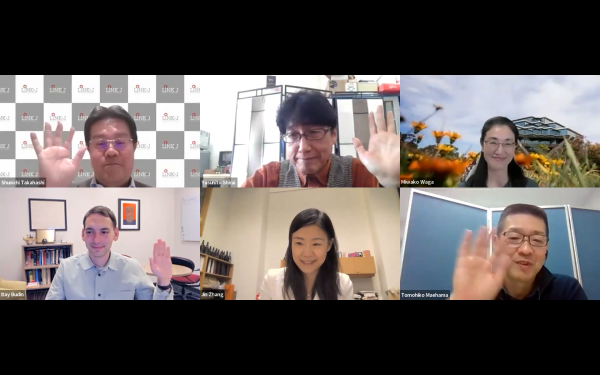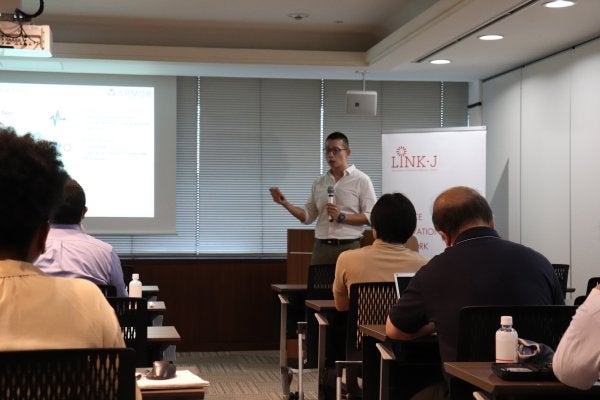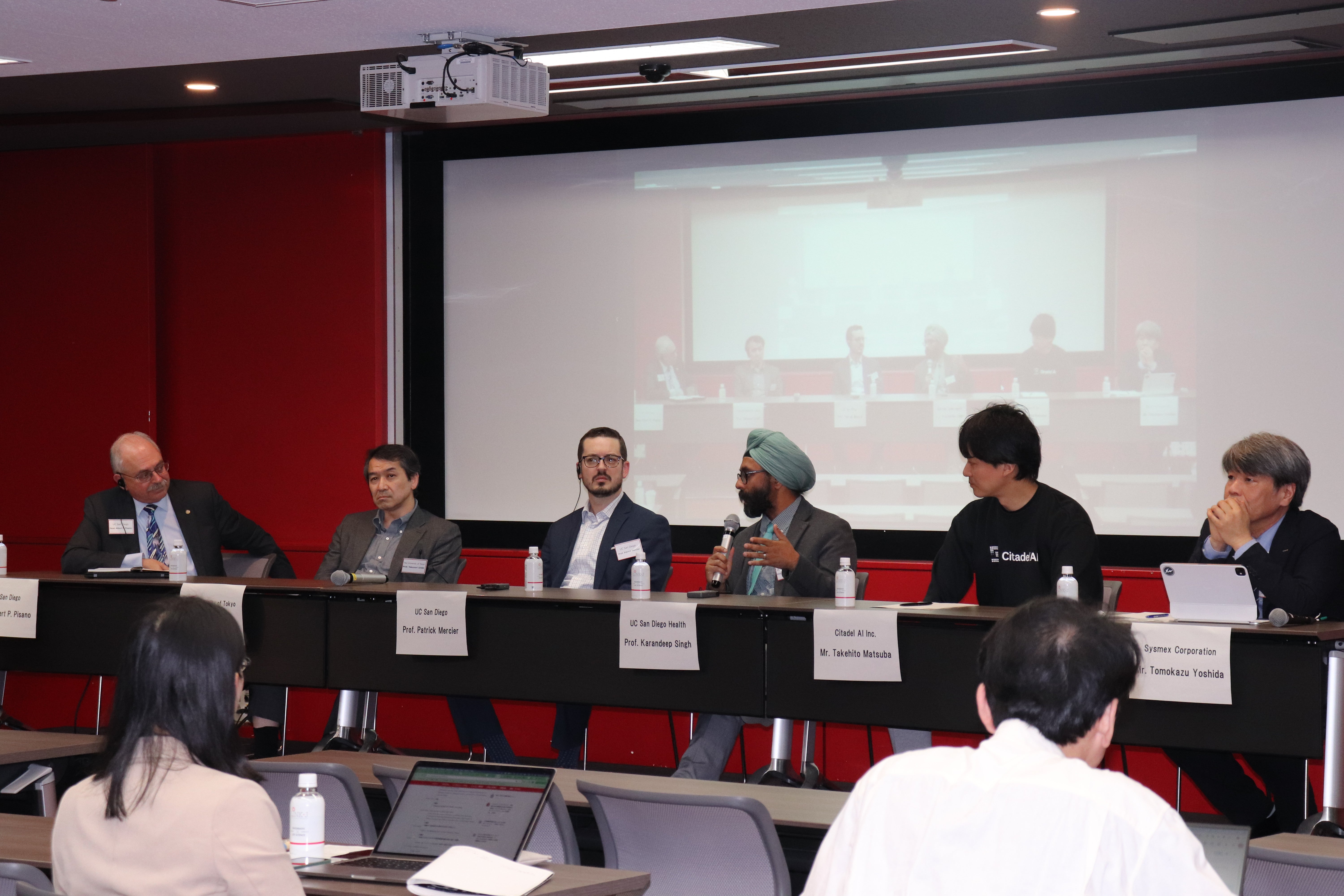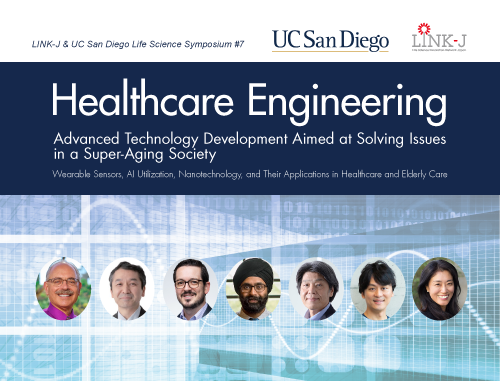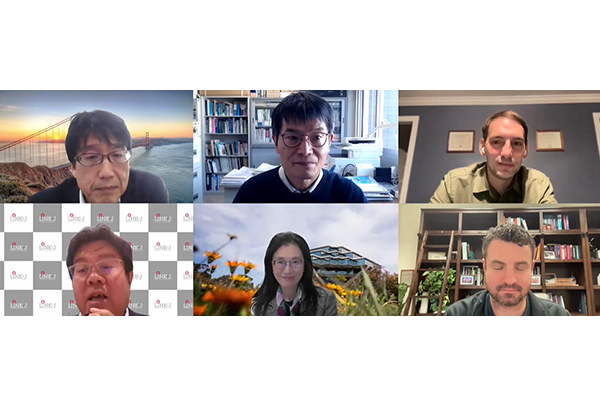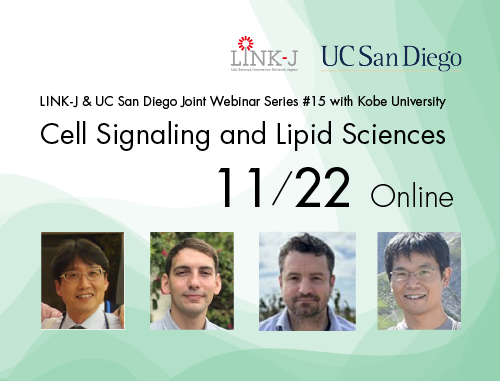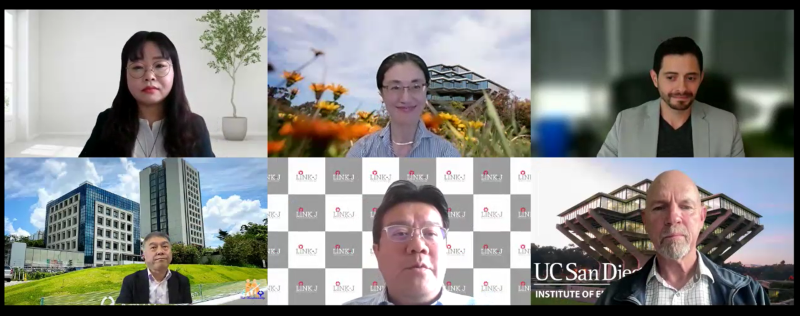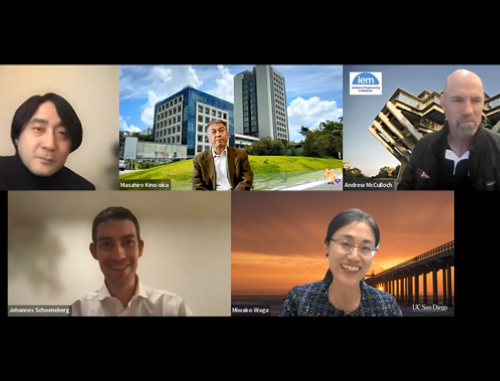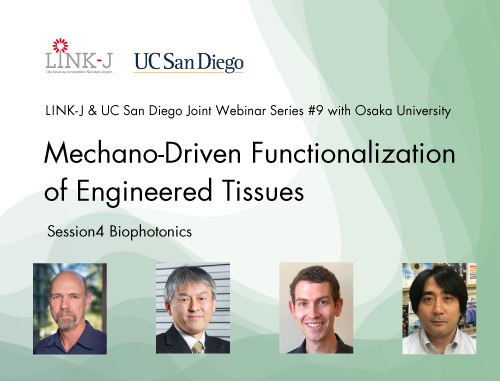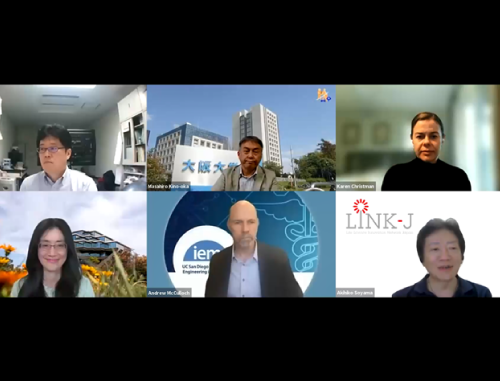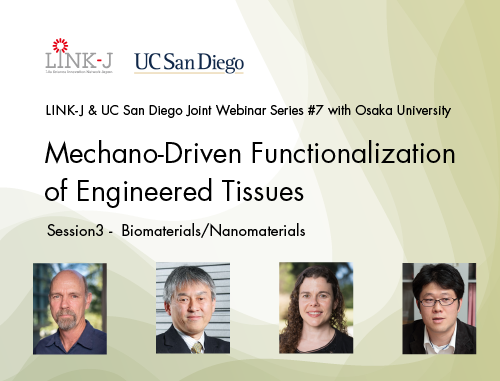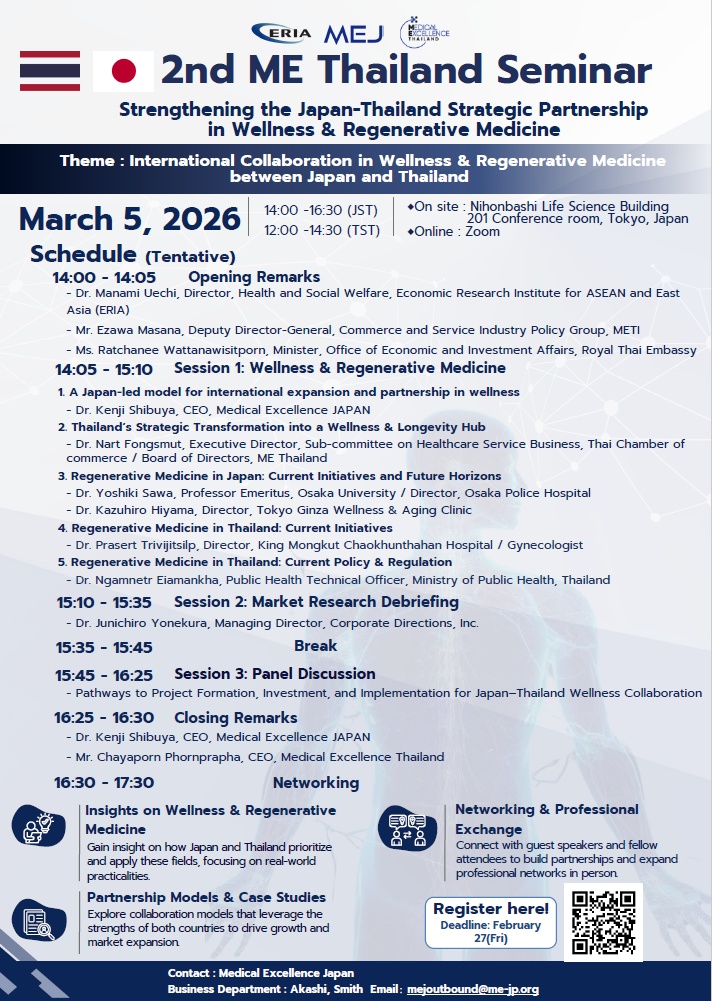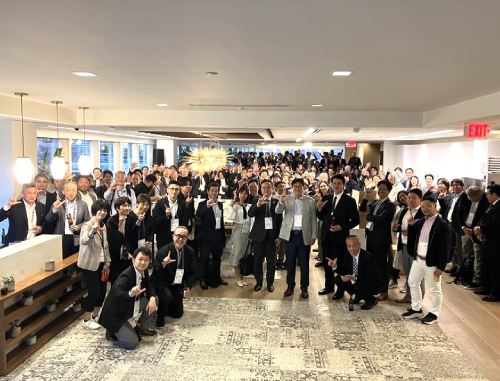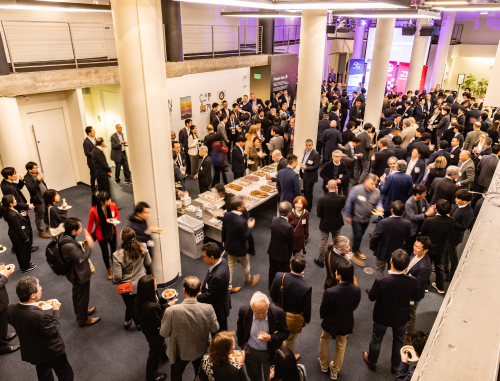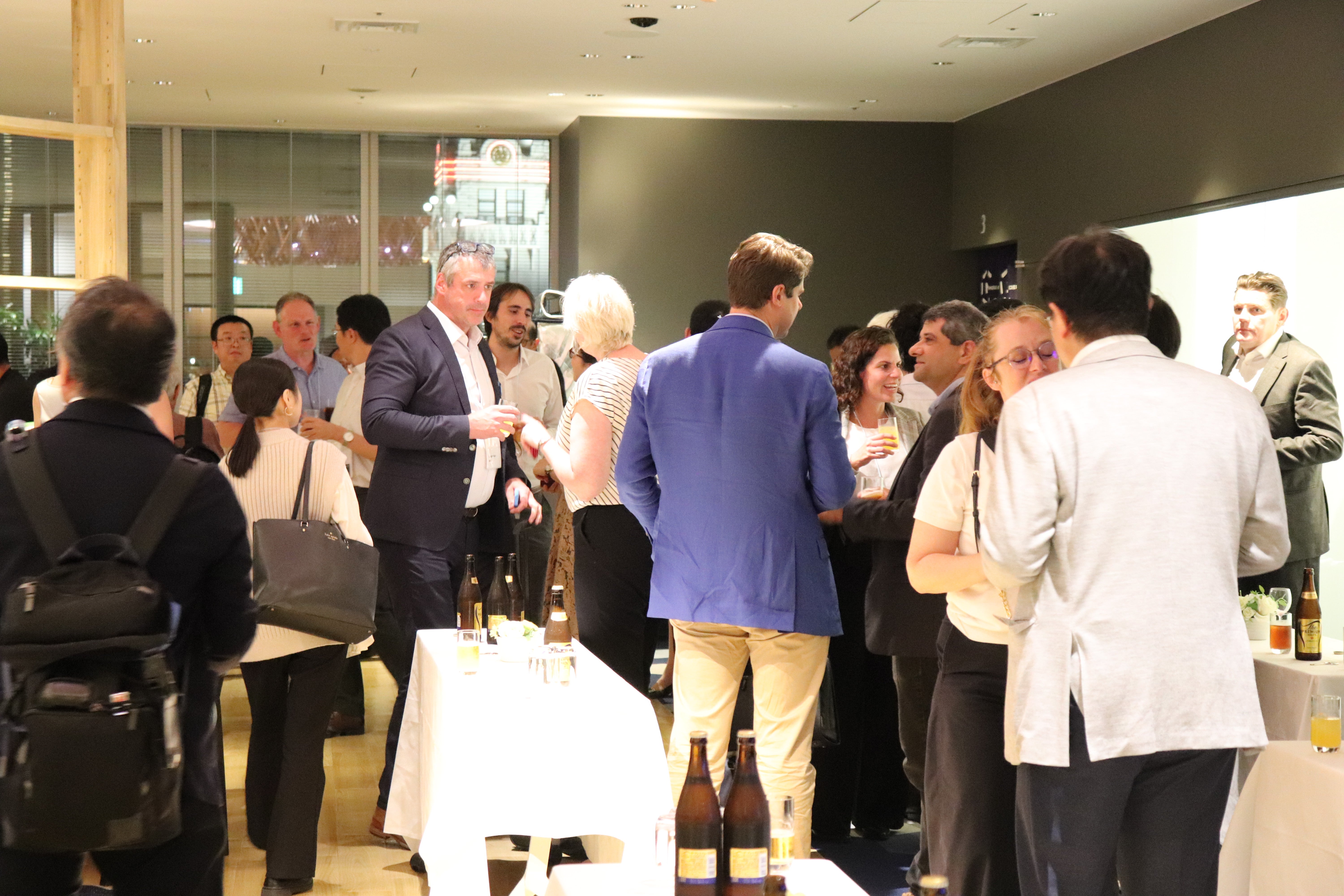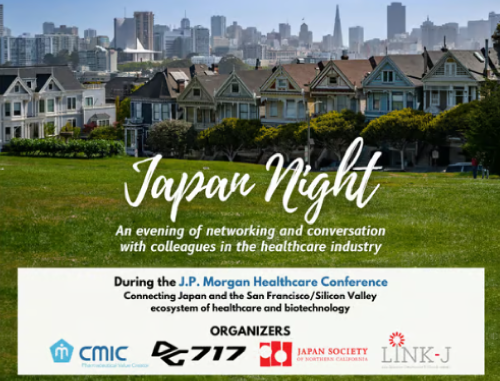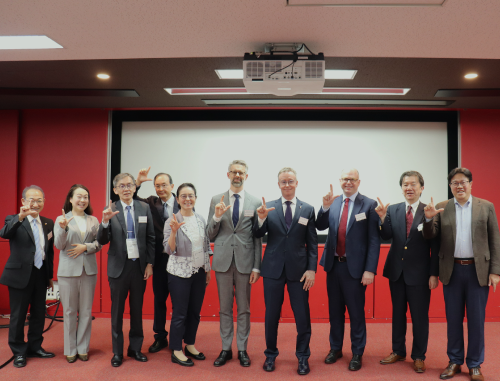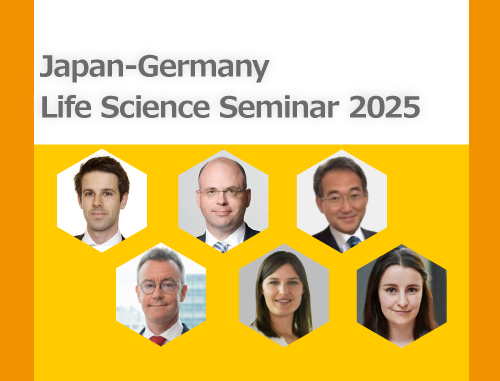UC San Diego and Osaka University have a long history of collaborations in education and research. In recent years, we have strived to expand our areas of collaboration to include bioengineering, bioinformatics, tissue engineering, and regenerative medicine. LINK-J and UC San Diego are pleased to offer a joint webinar, in cooperation with the Osaka University Global Center for Medical Engineering and Informatics (MEI Center), at which investigators from both institutions will present recent work in “precise cell-based modeling through cell and material preparations.”
*Language:English (English-Japanese simultaneous interpretation available)
*English captions are available (you can choose to turn them on or off).
*Please note that LINK-J and UC San Diego are not responsible for any errors or omissions in the captions.
How to use captions: Managing and viewing closed captioning
For past UC San Diego-related events and reports, please click here.
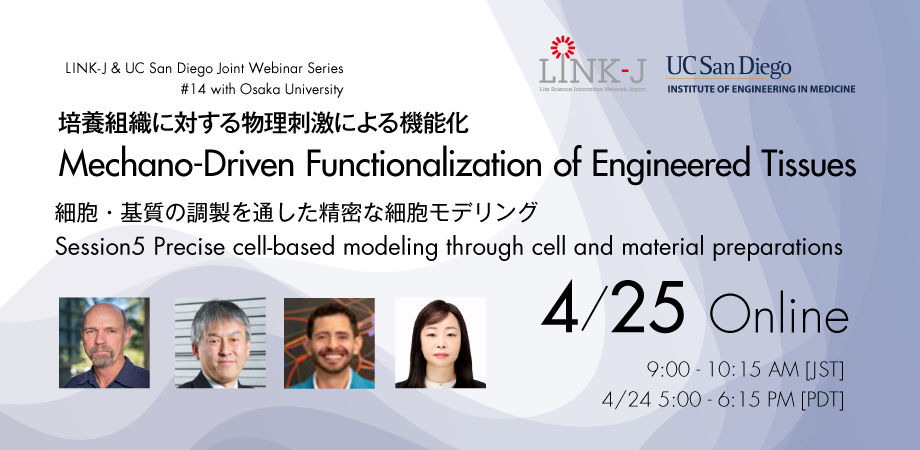
Date: Wed, April 24th, 5:00-6:15pm (PDT) / Thu, April 25th, 9:00-10:15am (JST)
Zoom Webinar
(Opens an external site)
Registration Fee
Free
Click ”Register here!” to open an external site.
How to participate
This event will be broadcasted on Zoom webinar.
Program
| Japan Time | Pacific Time | Agenda |
| 9:00-9:05 | 5:00-5:05 |
Emcee – Shunichi Takahashi, PhD, LINK-J |
| 9:05-9:30 | 5:05-5:30 | Presentation -“Determining sex differences in cardiovascular disease using biomaterials” Dr. Brian Aguado, PhD, Assistant Professor of Bioengineering, UC San Diego Jacobs School of Engineering |
| 9:30-9:35 | 5:30-5:35 | Q&A moderator : Dr. McCulloch |
| 9:35 | 5:35 | Speaker Introduction Dr. Kino-oka |
| 9:35-10:00 | 5:35-6:00 | Presentation -“Development of Culture Strategy for the Synchronous Differentiation of Human Induced Pluripotent Stem Cells” Dr. Mee-Hae Kim, PhD, Associate Professor, Osaka University Graduate School of Engineering |
| 10:00-10:14 | 6:00-6:14 | Q&A and Discussion moderator : Drs. Kino-oka and McCulloch |
| 10:14-10:15 | 6:14-6:15 | Closing Remarks |
Abstract
Dr. Brian's talk
"Determining sex differences in cardiovascular disease using biomaterials"
Cardiovascular disease is the leading cause of death in both men and women, yet our mechanistic knowledge of the sex-specific molecular and cellular mechanisms that guide cardiovascular disease progression, particularly in women, remain poorly characterized. Studies evaluating disease mechanisms rarely state the sex of cells used for in vitro studies or are performed primarily in male animal models, causing our gap in knowledge. My laboratory uses precision biomaterials as in vitro and in vivo tools to dissect mechanisms that contribute to sexual dimorphisms in cardiovascular diseases, specifically aortic valve stenosis.
In my talk, I will discuss how we have used hydrogel biomaterials as engineered valve matrix mimics to explore sex dimorphisms in valvular interstitial cell phenotypes in vitro and describe sex-specific molecular mechanisms that may drive dimorphisms in aortic valve stenosis. Our work seeks to leverage biomaterial technologies to understand sex dimorphisms in health and disease, with the long-term goal of achieving sex and gender equity in cardiovascular disease treatments and outcomes.
Dr. Mee-Hae's talk
"Development of Culture Strategy for the Synchronous Differentiation of Human Induced Pluripotent Stem Cells"
To industrialize induced pluripotent stem cell (iPSC)-derived therapies, it is necessary to demonstrate the safety and efficacy of these therapies and develop robust and controllable bioprocesses to produce iPSC-derived functional cells. However, developing culture strategies for bioprocesses remains challenging because there is no efficient way to synchronize their differentiation stages.
This webinar will provide a novel culture strategy to improve the differentiation stability of iPSCs and their efficiency in giving rise to functional cells. First, we will briefly introduce the impact of mechanical forces within the cellular environment and identify key cell state determinants in iPSC expansion and differentiation. Specifically, we will focus on the manner in which cell behavior triggers mechano-chemical transduction signaling pathways in relation to the initial cell fate decision. We will then introduce the effect of the botulinum hemagglutinin (HA) on cell synchronization to achieve homogeneous population of differentiated cells. Temporal disruption of cell‐cell interactions by HA suppresses spatial heterogeneity of cells within the culture and synchronize mechanical memory via YAP localization. The homogeneous population of cells with the synchronized mechanical memory have higher capability to differentiate into functional cells than unsynchronized iPSCs. Finally, we will discuss the design principles of synchronous differentiation strategy for iPSCs based on the concept of Waddington’s epigenetic landscape and it potential application to an existing culture technologies.
Biography
 |
Dr. Andrew McCulloch, Distinguished Professor of Bioengineering and Medicine; Director, Institute of Engineering in Medicine, UC San Diego Dr. Andrew McCulloch is Distinguished Professor of Bioengineering and Medicine at the University of California San Diego and Director of the Institute for Engineering in Medicine. He earned his bachelor (1981) and Ph.D. (1986) degrees in Engineering Science at the University of Auckland and joined the UC San Diego faculty in 1987. He directs the UCSD Interfaces Graduate Training Program and the Interdisciplinary Ph.D. Specialization in Multi-Scale Biology. Dr. McCulloch served as Vice Chair of the Bioengineering Department from 2002 to 2005 and Chair from 2005 to 2008. He is also a member of Qualcomm Institute, the Center for Research on Biological Systems, and a Senior Fellow of the San Diego Supercomputer Center. |
 |
Dr. Masahiro Kino-oka, Professor, Department of Biotechnology, Graduate School of Engineering, Osaka University [Professional Experience] 1991.06 - 2000.01: Osaka Univeristy, Research Associate 2000.02.01 - 2003.03.31: Department of Materials Engineering Science, Graduate School of Engineering Science, Associate Professor 2003.04.01 - 2007.03.31: Department of Materials Engineering Science, Graduate School of Engineering Science, Associate Professor 2007.04.01 - 2009.03.31: Department of Materials Engineering Science, Graduate School of Engineering Science, Associate Professor 2009.04.01 - 2020.03.31: Division of Science and Biotechnology, Graduate School of Engineering, Professor 2020.04.01 - present: Department of Biotechnology, Graduate School of Engineering, Professor [Education] [Research topics] |
 |
Dr. Brian Aguado, Assistant Professor of Bioengineering, Dr. Brian Aguado (Twitter: @BrianAguado) is currently an Assistant Professor of Bioengineering at UC San Diego, where his laboratory research is focused on studying sex differences in cardiovascular disease using biomaterial technologies. |
 |
Dr. Mee-Hae Kim, Associate Professor at the Department of Biotechnology, Osaka University Graduate School of Engineering Mee-Hae Kim is an Associate Professor at the Department of Biotechnology, Osaka University, Japan. In 2007 she obtained her doctoral degree from Osaka University, and from 2007 to 2010 she held a postdoctoral researcher position at the Department of Biochemical Engineering, Osaka University. In 2010 she was appointed an assistant professor at Department of Biotechnology, Osaka University, and promoted to Associate Professor in 2016. Her research is focused on the development of novel cell culturing strategies for enhancing stem cell-based research and therapy. |
Participation Fee
Free
Organizer
Organizer:LINK-J
Co-organizer:University of California San Diego
